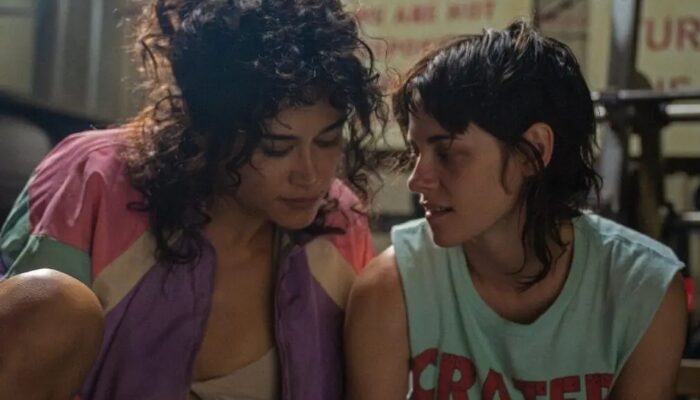Film Review: MINARI (2020): The American Dream By Way of Slice-of-Life Struggles
Minari Review
Minari (2020) Film Review, a movie directed by Lee Isaac Chung, and starring Steven Yeun, Yeri Han, Alan S. Kim, Noel Cho, Yuh-Jung Youn, Will Patton, Darryl Cox, Esther Moon, Ben Hall, Eric Starkey, Jacob M Wade, James Carroll, Jenny Phagan, Tina Parker, and Chloe Lee.
Conflict is an inevitable by-product of existence. It comes from life’s own imperfections, spiraling out from our isolated selves, in variable quantities based on our own individual experiences. Not every single strife is notable nor life-altering on its own, but when added together they can create an overwhelming force. Community support and familial strength can help us weather these psychological storms … but only if they are not just spurring them along themselves.
Life is, thusly, a delicate balance of various conflicts, and finding that equilibrium is what makes it all manageable. Lee Isaac Chung’s Minari is a portrait of one such juggling act about finding how to best survive as yourself when you’re an outsider amongst outsiders.
Things are shaken up right from the get-go as the Yi family drives onto their new plot of land in rural Arkansas, far from their original Californian abode. Despite being miles away from civilization on dried-out land with a trailer that leaks, Jacob (Steven Yeun) is steadfast in his determination to start farming Korean vegetables to sell to growing Asian marketplaces in the American South. His wife Monica (Yeri Han), despite feeling doubtful, supports Jacob’s prospects in the hopes that – with a lot of faith and prayer – they will find a prosperous new life beyond the chicken sexing factory.
After one too many setbacks from dried-up watersheds to pure and simple loneliness, Monica sends for her mother Soonja (Yuh-Jung Youn) to come live with them, hoping to introduce Korean customs and heritage to their new rural lives – and especially to their children, Anne and David (Noel Cho and Alan S. Kim, respectively). But too many personalities under one roof makes for a cramped living space: while Jacob and Monica are bickering with each other, so are Anne and David at odds with their grandma. The little conflicts begin coalescing, with medical scares, financial hardships, and social frustration all threatening to stall their shot at the American Dream.
Chung imbues Minari with a slice-of-life softness that loosely connects all of its events with a meandering throughline. It’s not so much an episodic portrayal as it is a multifaceted conception, and each moment – no matter how trivial or insignificant it may seem in the grand scheme – is given its time of relevance.
For instance: a coworker’s off-handed comment about the dissatisfaction of rural Korean immigrants with organized religion makes the already lonely and pious Monica feel all the more isolated; a young boy’s initially insensitive remarks towards David quickly morphs into childlike curiosity and hospitality, making David feel confused but oddly welcomed; Anne and David overhear some boys making fun of their dad’s farmhand Paul (Will Patton) for his odd behaviors, and are conflicted over whether to defend Paul to their peers or to feel ashamed by associating with an outcast – especially as they themselves feel like the outsiders in a majority white community.
On that note, it’s interesting how – although racism is undoubtedly one of the factors in the Yi family’s struggles – Chung doesn’t make it a main focal point of the narrative. Rather, he allows the film’s basic frontier struggle of sorts – an archetype usually only seen in narratives that center white Americans – to play out with a family of Korean immigrants. The racist microaggressions the Yis may experience on their peripheries are assumedly suppressed, further compiling their emotional hurt and feelings of solitude inward, but it is not their story’s defining factor. Such a set-up Ievels the playing field with regards to both the historical narrative and cultural representation, and simply makes the Yis’ story all the more complex. To ironically respond to those reply guys with devil’s advocate mindsets, it’s actually not all about race.
This is especially true given how a majority of the Yi family’s tumultuousness is shaped by how much their interpersonal relationships can turn on a dime, both helping to prevent and contributing to their persistent strife. The most frequent example is David’s relationship with his grandma, wherein he doesn’t like her bluntness and she doesn’t understand his bratty nature. And yet, Soonja comforts David (both when he injures himself with a dresser drawer and when he experiences a metaphysical crisis for fear of not living up to his mom’s religious expectations), while David humors Soonja and provides her company when others won’t.
Chung’s patient direction allows us to stir with these scenes and decipher their relevance to the Yis’ overall struggle on our own accord. By pairing it with such detailed shots of the Arkansan countryside, complete with sparkling brooks and rustling wild grasses, he also gives us time to take in the beauty of this elaborately reconstructed atmosphere. It allows us to further contend with the unfair philosophical dichotomy that merely existing in this pretty and difficult world creates.
With Minari, Chung suggests that the struggle for the American Dream is not only a struggle for some but for all who attempt it, just with varying levels of difficulty. It’s both a love letter to self-determination and trailblazing and a tragic reminder of the destruction such a Dream can conjure up. It’s undoubtedly recognizable, undoubtedly original, and undoubtedly American, through and through.
Rating: 9/10
Leave your thoughts on this Minari review and the film below in the comments section. Readers seeking to support this type of content can visit our Patreon Page and become one of FilmBook’s patrons. Readers seeking more film reviews can visit our Movie Review Page, our Movie Review Twitter Page, and our Movie Review Facebook Page. Want up-to-the-minute notifications? FilmBook staff members publish articles by Email, Twitter, Facebook, Instagram, Tumblr, Pinterest, Reddit, and Flipboard.
Related Articles
FilmBook's Newsletter
Subscribe to FilmBook’s Daily Newsletter for the latest news!













